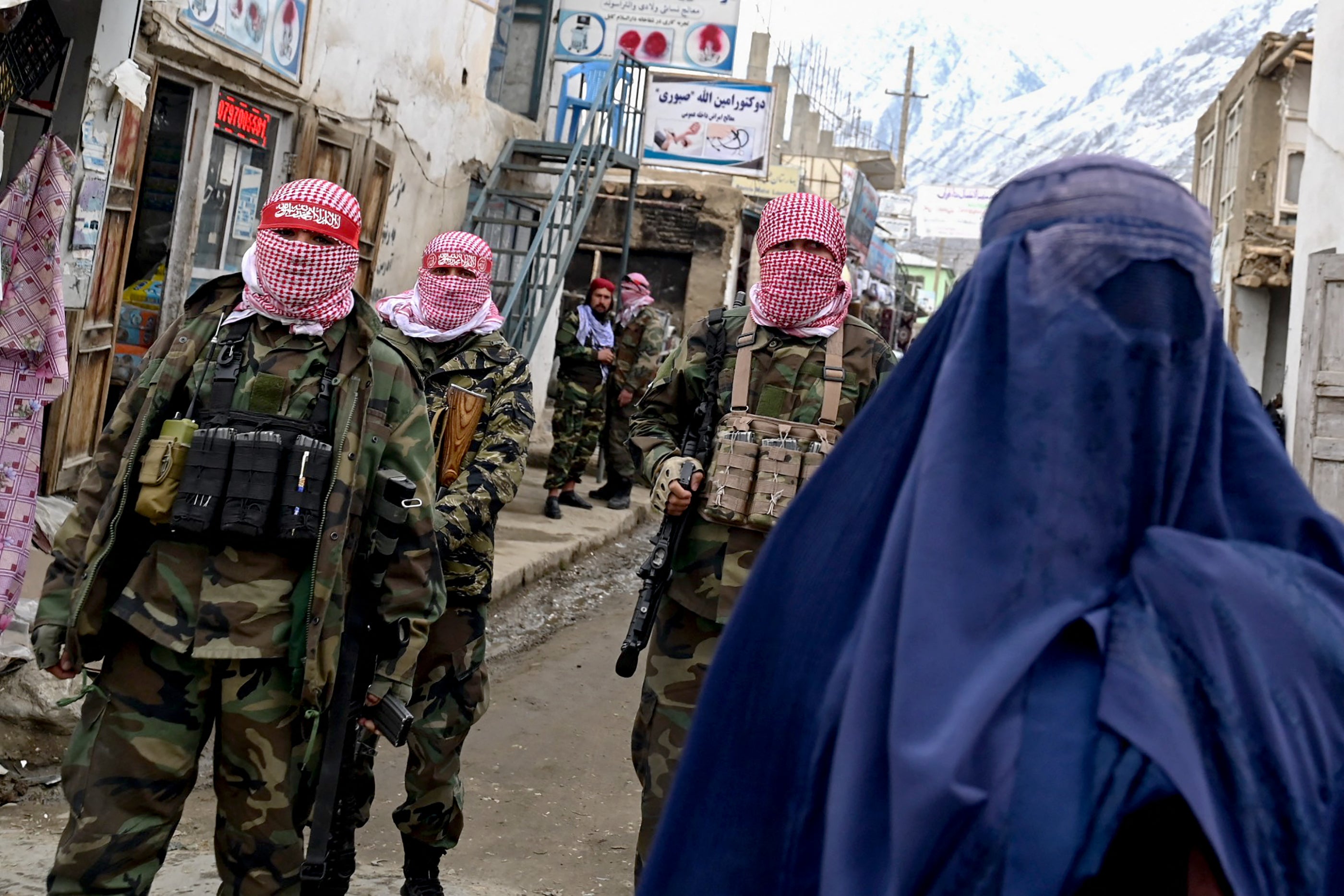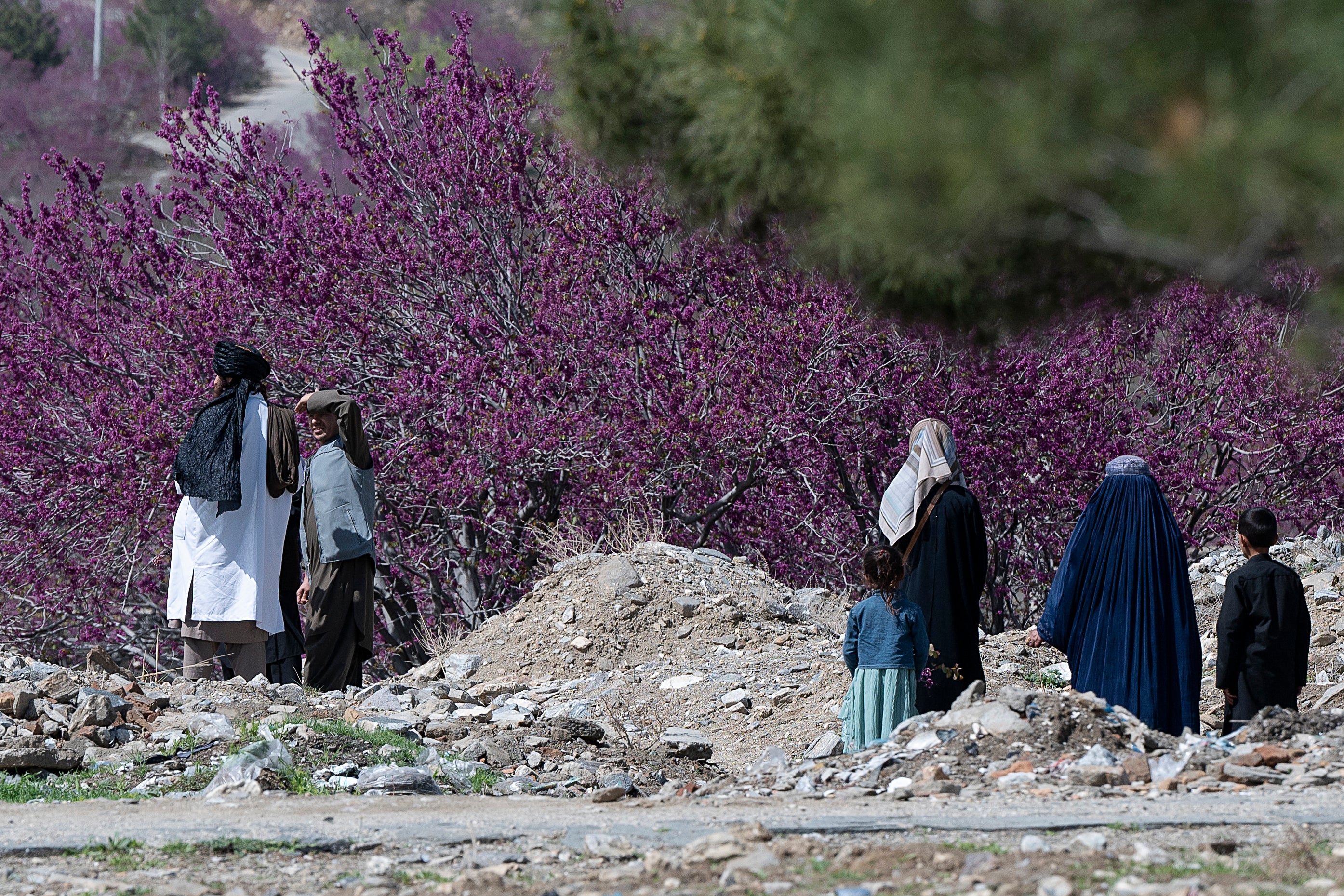Taliban’s ‘self-stated goal of legitimacy can only be achieved’ with women’s participation, says US
Arpan Rai
The Taliban will not be recognised as the legitimate government of Afghanistan until it allows the full participation of girls and women in the wartorn country’s society, the US State Department has said.
Equal rights for women and girls continues to be a key tenet of US policy towards Afghanistan, said Vedant Patel, the principal deputy spokesperson for the department, speaking at a news briefing on Wednesday.
“We continue to reiterate regularly, through relevant channels, with the Taliban that their self-stated goal of legitimacy can only be achieved, and will likely be impossible to achieve, if half of their population is being left out of participating in its society, participating in its economy,” Mr Patel said.
The Taliban has effectively removed girls and women from schools, colleges, public parks, gyms, salons and national parks through several diktats banning them from entering these places.

Taliban security personnel in the Baharak district of Badakhshan province (AFP )
“It continues to be a key factor of our approach to Afghanistan policy, and it’s something that we’ll continue to work towards,” Mr Patel said, referring to the inclusion of more than 21 million women in Afghan society.
The ban on education for girls and women is the Taliban’s biggest criticism which has hindered its plans to gain recognition as the legitimate rulers of Afghanistan.
Last month, Afghanistan renewed its academic year but without any trace of girls whom they barred from attending classes beyond the sixth grade, making it the only country with restrictions on female education.
Before taking full control of Afghanistan in August 2021, shortly after the US and Nato forces pulled out of the country, the Taliban promised a more moderate governance in its second stint. In the 1990s, they banned education for girls and women, along with restricting women’s movement outside their houses without a male guardian. Both edicts have returned to Afghanistan despite the protest of the international community.

“It continues to be a key factor of our approach to Afghanistan policy, and it’s something that we’ll continue to work towards,” Mr Patel said, referring to the inclusion of more than 21 million women in Afghan society.
The ban on education for girls and women is the Taliban’s biggest criticism which has hindered its plans to gain recognition as the legitimate rulers of Afghanistan.
Last month, Afghanistan renewed its academic year but without any trace of girls whom they barred from attending classes beyond the sixth grade, making it the only country with restrictions on female education.
Before taking full control of Afghanistan in August 2021, shortly after the US and Nato forces pulled out of the country, the Taliban promised a more moderate governance in its second stint. In the 1990s, they banned education for girls and women, along with restricting women’s movement outside their houses without a male guardian. Both edicts have returned to Afghanistan despite the protest of the international community.

Women and children are barred from visiting a recreational park in Charikar, Parwan Province (AFP)
The Taliban previously said girls continuing their education went against their strict interpretation of Islamic law, or Sharia, and that certain conditions were needed for their return to school. However, they made little or no progress in creating those conditions, according to government critics.
Education given to boys and men, although more legitimised by the Taliban as opposed to none for girls, is also severely harmful, international human rights groups have found out.
The Taliban have “abusive” educational policies which are harming boys as well as girls. In December last year, Human Rights Watch said there has been less attention to the deep harm inflicted on boys’ education as qualified teachers – including women – left, and inclusion of regressive curriculum changes as well as an increase in corporal punishment have led to falling attendance.
The Taliban previously said girls continuing their education went against their strict interpretation of Islamic law, or Sharia, and that certain conditions were needed for their return to school. However, they made little or no progress in creating those conditions, according to government critics.
Education given to boys and men, although more legitimised by the Taliban as opposed to none for girls, is also severely harmful, international human rights groups have found out.
The Taliban have “abusive” educational policies which are harming boys as well as girls. In December last year, Human Rights Watch said there has been less attention to the deep harm inflicted on boys’ education as qualified teachers – including women – left, and inclusion of regressive curriculum changes as well as an increase in corporal punishment have led to falling attendance.
No comments:
Post a Comment